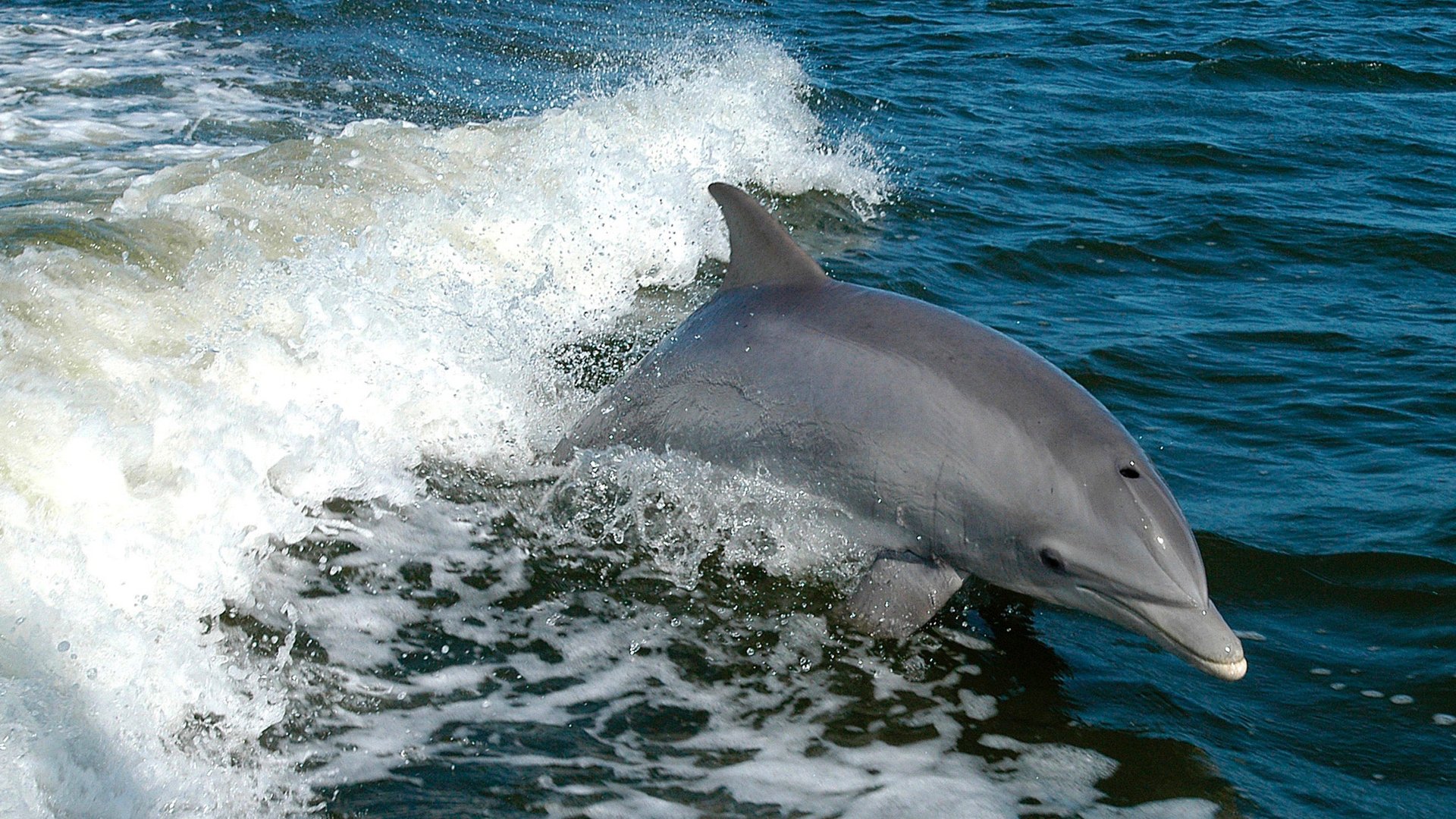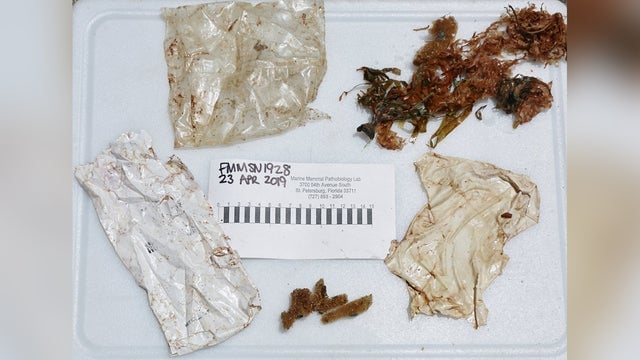A stranded dolphin in Florida shows why plastic bags are the worst
The waters of the Gulf of Mexico are warm and welcoming. Even during the dead of winter, Floridians enjoy higher temperatures swimming than New Yorkers on land in spring. We share the area with a marvelous array of wildlife, including dolphins—long, strong sleek creatures who speed by in pods, their jutting fins, swooping swim, and playful jumps signaling their elegant presence.


The waters of the Gulf of Mexico are warm and welcoming. Even during the dead of winter, Floridians enjoy higher temperatures swimming than New Yorkers on land in spring. We share the area with a marvelous array of wildlife, including dolphins—long, strong sleek creatures who speed by in pods, their jutting fins, swooping swim, and playful jumps signaling their elegant presence.
It is a common phenomenon that never ceases to amaze. On any given day, out on the Sarasota Bay where I live, you can swim or sail with dolphins, and it is awesome. But future generations won’t be able to enjoy nature if we humans keep trashing the planet. Just ask the residents of nearby Fort Meyers who this week got proof positive that our addiction to plastic is proving disastrous for marine life.
A young, female, deep-sea, rough-tooth dolphin washed up onto the shores of Fort Meyers Beach on April 23. The creature was emaciated, far from its natural range, and very sick. Though marine biologists tried to save her, help came too late. The following day, the ailing mammal was put of out her misery. Michelle Kerr of the Florida Fish and Wildlife Commission (FWC) research institute explained to Florida Today, “We made the decision to humanely euthanize on-site.”

Researchers conducted a necropsy, examining the dolphin’s insides post-mortem to try to determine what was wrong with her. On April 26, FWC announced in a Facebook post that biologists found two plastic bags and a piece of a balloon in the young creature’s stomach. The commission characterized the detritus in the dolphin’s insides as a “significant finding.”
A disastrous pattern
Sadly, the finding, while significant, isn’t totally shocking. This is hardly the first time that human trash has been found in animals. Last July, a pilot whale in Thailand died after ingesting 80 plastic bags instead of its usual diet of squid and jellyfish. The whale was vomiting plastic bags when it was discovered, and marine biologists were unable to save it.
In April 2018, a sperm whale that washed up dead on the shores of Southeastern Spain was found with 64 lbs (29 kg) of waste in its stomach, including bags and a plastic drum. Researchers believe that the trash piled up in the whale’s digestive system, which caused a blockage and infection that led to its death.
Last December, a study of 102 sea turtles from the Atlantic and Pacific oceans and the Mediterranean Sea found that every single one had eaten plastic. Taking just a small sampling of the creature’s digestive tracks, the researchers discovered synthetic fibers that make their way into the water after we launder acrylics and polyesters in washing machines, micro-beads (tiny bits of plastic used in exfoliating bath products), and plastic fragments. The researchers didn’t trace the origins of the trash found in the turtles, but as Quartz’s Zoë Schlanger noted, it’s highly likely that some of the broken down fragments came from plastic bags.
There is no question that this trash is hurting our fellow creatures. In 2015, marine biologists in the waters off of Costa Rica captured a turtle with something encrusted in and blocking its nostril. They initially thought it was a barnacle but the object proved to be a plastic straw. The team posted a video of the researchers slowly removing the straw from the turtle’s nose as it bleeds and winces. Watching the animal suffer though the procedure is painful, though surely not as bad as actually having plastic shoved up an orifice.
As for the Florida dolphin that died this week, researchers aren’t yet ruling out an underlying disease or maternal separation to explain how she ended up sick, alone, and far from home. They will continue to analyze the dolphin’s remains in a lab. But they also emphasized the fact that our use of plastic is highly problematic. “This finding highlights the need to reduce single-use plastic and to not release balloons into the environment,” FWC wrote in its Facebook post.
So, if you are still debating whether to choose between plastic and an organic cotton tote—the production of the latter taxes precious water resources and contributes to climate change—please add our dead dolphin friend to your list of considerations. And remember not to flush your contact lenses down the toilet, because those too are ending up at sea, where creatures ingest them to the detriment of their health.
Litter, critters, and us
Still, the news isn’t all terrible. Around the world, people are getting wise to the dangers of single-use plastics. In today’s London marathon, for example, plastic bottles of water are being replaced with pouches made of seaweed (minus the smell and green color) at the 23-mile mark. Organizers are hoping to reduce waste from the race, which 41,000 runners will participate in, and are aiming to cut the number of plastic bottles used this year by 200,000. Meanwhile bans on plastic bags, straws, stirrers, and balloons are increasingly being adopted by environmentally conscious communities.
Activists are impressed with the transformation. “We’re seeing society change right before our eyes, and it’s an incredible moment. The public awareness has reached the point where the public policy is changing,” Adrienne Esposito of the Long Island, New York advocacy group Citizens Campaign for the Environment, told Newsday this week.
Unlike so many of the world’s pressing problems—wealth inequality, wars, climate change, hate—curbing the use of plastic, being careful about where we trash it, and picking up litter is something each of us can easily manage.
You might even find it feels pretty nice to collect garbage when you think it could save a sea turtle or dolphin’s life, as I have. It used to seem weird and gross to me to collect the bottles, cans, and random flip flops that collect along the shores in Sarasota. But now I do it easily and it seems like a tiny gesture that helps mitigate the other negative effects of my existence, and quite possibly helps spare some living creature pain. If we all act now, then future generations will also be able to experience the exquisite pleasure of sharing waters with healthy dolphins.